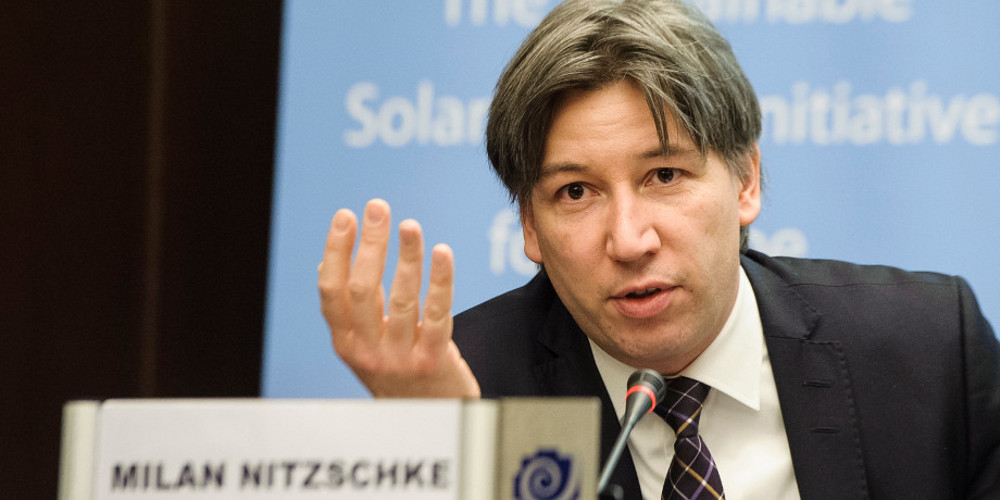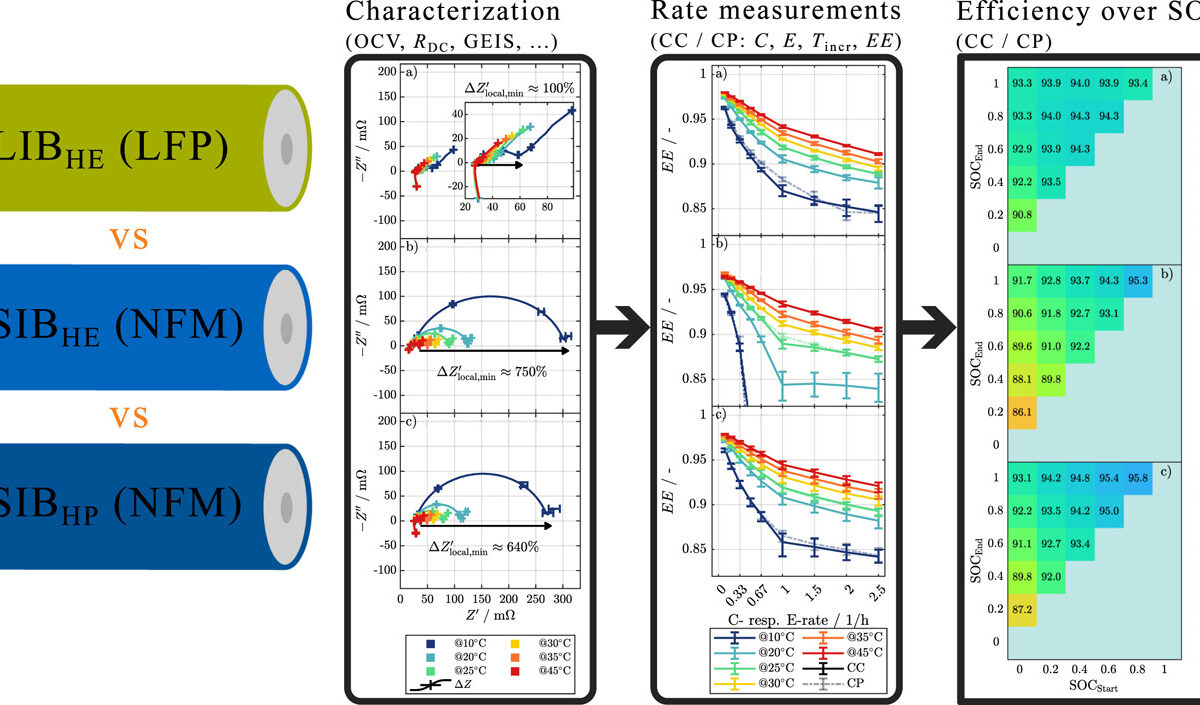The announcement that tariffs will be imposed on imports of solar PV modules into the U.S., has, naturally, elicited mixed feelings from the industry. Although Chinese products were at the center of the debate prior to the decision, all non-U.S. manufacturers will be affected.
James Watson, CEO of the European PV association, SolarPower Europe, tells pv magazine the decision will lead to a contraction in the market and with it, a loss of jobs; something the U.S. Solar Energy Industry Association (SEIA) also sees.
Of the 400,000 people employed in the U.S. solar industry, says SEIA, just 2,000 are involved in the manufacture of cells and modules. The tariff decision endangers these, it says.
“Sadly the American government has taken the decision to impose trade measures on solar products … These policies have been tried in many parts of the world and in not one case have the measures lead to more jobs, more manufacturing and more value,” comments Watson.
He continues, “In essence trade measures are a blunt tool with many unforeseen consequences on solar manufacturers of other crucial elements of the value chain, such as polysilicon, mounting frames, inverters, trackers, etc. etc.
“I would hope that in this age of solar we would see fewer barriers to solar rather than more. These types of barriers simply slow the energy transition and give highly polluting forms of power generation longer life.”
The Solar Alliance for Europe (SAFE) is equally critical, stating that increasing protectionism is only serving to slow down the cost-effective expansion of solar.
Spokesman Holger Krawinkel says it is good that the EU trade restrictions are set to expire within a few months. “The EU could and should remain a counterweight to the protectionism of the U.S. administration,” he says, adding that the expiring trade restrictions have already revived the German solar market, in particular.
A further significant increase in PV expansion is urgently needed, says SAFE, also to ensure that the growing demand for electricity for the foreseeable strong growth in electromobility is CO2-free. “Falling module prices are the best guarantee for this,” says Krawinkel.
Bilateral agreement
As expected, EU ProSun has expressed understanding of the move, and is now calling for preferential treatment of “genuine” European solar manufacturers.
“As European manufacturers, committed to fair trade and competition, we suggest a bilateral import quota or a minimum import price agreement,” stated president Milan Nitzschke.
“Such an agreement would solve the deficiency that otherwise the victims of dumping become victims of antidumping as well. Furthermore a bilateral agreement could ensure supply of fairly traded quality cells and modules to the growing solar U.S. market meeting demand of U.S. customers and enabling U.S. manufacturers to scale up capacities the same time,” he adds.
Commenting, Jenny Chase, solar analyst at Bloomberg New Energy Finance (BNEF) tells pv magazine, “I don't think anyone, especially in the US, really cares what EU ProSun calls for.” She adds, “Although, to be fair, it seems possible that there will be a general window for negotiation of individual country agreements in the next few weeks. And EU ProSun might sneak it in somehow.”
Eu ProSun, which is said to comprise 30 European solar manufacturers, has consistently declined to disclose the names of its members, other than that of Qatari-owned SolarWorld. “What kind of organisation is it that the allegedly existing members want to keep their membership a secret? Not that that necessarily stops them getting traction with the current U.S. administration,” adds Chase.
SolarWorld Americas Inc., which led the petition alongside Suniva Inc., has also voiced its support of the tariffs. In a statement issued yesterday, it said, “SolarWorld Americas appreciates the hard work of President Trump, the U.S. Trade Representative, and this administration in reaching today’s decision … We are still reviewing these remedies, and are hopeful they will be enough to address the import surge and to rebuild solar manufacturing in the United States.
“We will work with the U.S. Government to implement these remedies, including future negotiations, in the strongest way possible to benefit solar manufacturing and its thousands of American workers to ensure that U.S. solar manufacturing is world-class competitive for the long term.”
Exemptions
Overall, the decision was not as bad as some had feared. Safeguard tariffs on solar module and cell manufacturers will be imposed for the next five years, starting at 30% and ending at 15% in year four.
Exempt were 2.5 GW of annual cell imports, which could help to keep some U.S. solar manufacturers in business, as most – aside from Panasonic and SolarWorld – produce their own cells.
Responding to the announcement yesterday, Tony Clifford, chief development officer, Standard Solar said that while the decision may slow the U.S. solar industry, it certainly won’t stop it. “The Solar Century is here, and not even unfair tariffs will stand in its way,” he said.
The article was amended on January 23 at 13.31 to include comment by BNEF's Jenny Chase.
This content is protected by copyright and may not be reused. If you want to cooperate with us and would like to reuse some of our content, please contact: editors@pv-magazine.com.




How strang that is- Milan Nitschke and Solarworld are the creators of the ongoing solar trade wars.
Now Cells and Modules from Germany are treated as “bad dumpers” together with anybody else on the planet by the US goverment.
Two foreign owned companies, of micky mouse size compared to the world market, Suniva bankrupt and Solarworld US in a weak position after the bankrupft of Solarworld Germany 2017, lead to another duty wave which will cause negative reactions for US Poly industrie. Which already lost soo much allthough highly competitive. Which Suniva and Solarworld are not on the wolrd markets- allthough “protected” in USA und EU for years causing a tremendous bodycount in the EU valuechain since 2013.
Seia fears the loss of 23.000 in the USA- try to safe a maximum of 3.000 will kill 23.000 by shrinking the US market.
Now Nichtscke finds himselft a victim of the US 201 decision- soo crazy.
As hier claims for a exemption of “real EU Modules” (why not say “greater german modules!”) he kicks the asses of his EUPROSUN – “friends” once again. As no more poly cells produced in the EU and Mini- Monoproductions is only at Solarworld- where should they buy “real European” – Cells? Ok, they are useful idiots. Yey, USEFUL IDOTS tricked so many times by Solarworld and stillung stupid believers in their alliance.
It`s event worse:
As Nitschke is also spokesman of an climate change denier club and hardcore lobbyist of the steel and metall industrie AEIGIS in Europe he is obviously only lobbying for duties. If of any help for the main target of Solar – it doesn`t matter. He not only reminds by visual of Kelo Ren who completely turned to the dark site in Star Wars even killing his father. Really disgusting career of a once strong Renewable Lobbyist in Germany- if there is still something good left?